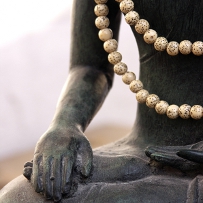|
|
|
|
|
 |

|

|

|
The greatest gift is the
gift of the teachings
|
|

|
| |
|
Dharma Talks
given at Spirit Rock Meditation Center
|
2010-01-30
Awakening Joy
2:42:34
|
|
James Baraz
|
|
|
James and co-writer of Awakening Joy Shoshana Alexander, plus many friends from the 10-month course--dharma teachers, happiness experts, neuroscientists, musicians and more--share their thoughts on true happiness. This is the AM Session which includes Rick Foster and Greg Hicks, Rick Hansen, and performances by Eve Decker, Betsy Rose and Jennifer Berezen.
|
|
Spirit Rock Meditation Center
|
|
|
|
|
|
|
|
|